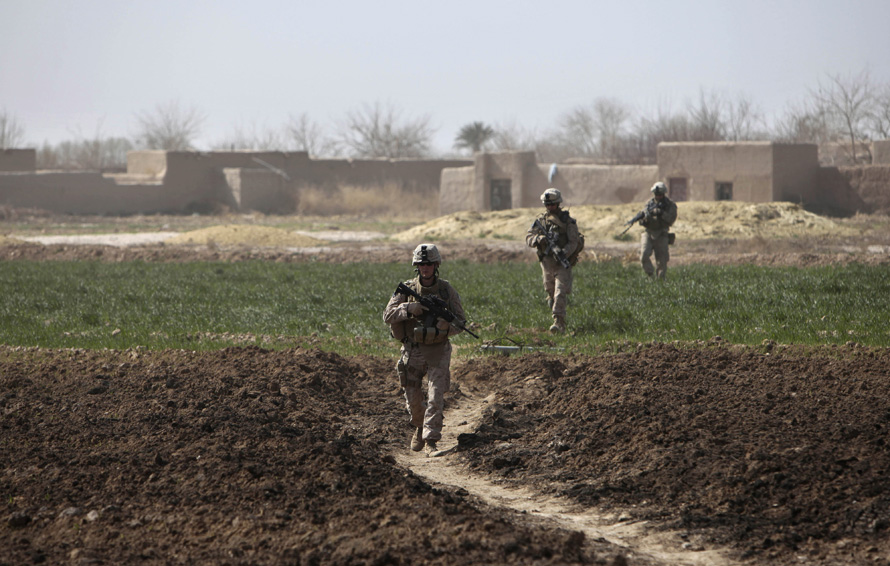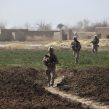
Taliban Spokesman Discusses U.S. Media and Military Strategies in Afghanistan
Publication: Terrorism Monitor Volume: 8 Issue: 14
By:

Many jihadi internet forums have circulated a recent special interview with the official spokesman of the so-called Islamic Emirate of Afghanistan, Qari Muhammad Yusuf al-Ahmadi. The interview was conducted for the March-April issue of al-Somod Islamic e-magazine, an official Taliban publication. In the interview, the Taliban official talks about U.S. President Barack Obama’s new strategy in Afghanistan and the military situation in the southwest in particular. (as-ansar.com, March 20).
Al-Ahmadi describes the Coalition’s military campaign in Helmand province as a failure because of the tough Taliban resistance. The Taliban spokesman claims that Helmand residents have inflicted heavy human losses on the Coalition. The 15,000 troops mobilized by the Coalition succeeded only in occupying Marjah, a small district in Helmand. “We could confidently say the end result of the military campaign and the fuss stirred by the media was aimed only at raising the flag of the treacherous government” says al-Ahmadi, who claims most parts of Marjah are under mujahideen control. According to al-Ahmadi, The United States realized, in the past eight years of war in Afghanistan, that it couldn’t crush the resistance; therefore, the Americans want to revise their tactics this year and include non-military tactics along with military operations. These tactics are:
• Start peace negotiations with the mujahideen through Karzai’s government.
• Spread rumors against the mujahideen to influence their morale.
• Include the “treacherous Afghan military” in joint operations with the “Crusaders” against the mujahideen.
Though these tactics were synchronized with media propaganda, they were a total failure, says al-Ahmadi, who asserts that the mujahideen not only pushed the enemy back in Helmand, but marched to the heart of Kabul to avenge the enemy at their fortresses, and killed tens of their soldiers. Al-Ahmadi had announced earlier the Taliban’s opposition to any peace negotiations with that Afghan government, but the statement received conflicting reactions from Salafi-Jihadi forum participants (7anein.info, March 16). Although Karzai’s government is corrupt, participating in peace negotiations might offer the Taliban a chance to change the current Afghani regime, said one forum member. Other members believe if Mullah Omar is in full control of the Taliban and promises to restrain the movement from committing violent acts against neighboring countries, the Coalition might agree to withdraw from Afghanistan.
The Mujahideen also succeeded in countering the enemy’s psychological warfare. Al-Ahmadi invited journalists to Helmand to verify facts on the battlefield and refute Coalition claims of victory. Responding to a Red Cross complaint, Ahmadi doesn’t deny that the Taliban has mined public squares in Marjah, but argues that the Red Cross should also investigate U.S. military war crimes in Afghanistan. “As the official spokesman of the Islamic Emirate, I demand that the Red Cross officials refrain from repeating claims dictated by the Americans.”
Al-Ahmadi said the strong resistance and jihad of the Afghan people has convinced all invaders, including President Barack Obama and U.S. Defense Secretary Robert Gates, that control of Afghanistan is far-fetched. The spokesman corroborates his claim by citing U.S. General David Petraeus, who said the United States faces a tough enemy and will see difficult days this year (msnbc, February 21). Although al-Ahmadi denied reports about the arrest and killing of many Taliban leaders, he emphasized the jihadi leaders’ courage in leading the way to battle:
"The Afghan people see by their own eyes that the top leaders of the Islamic Emirate race ahead of the ordinary mujahideen to the battlefields. The leaders are killed, injured, and fall captive. By the patience that they exhibited in Guantanamo and Bagram and by the pride they showed by bearing their ordeals, they proved that they prefer the life of prisons and torture over a life of leisure under the enemy. They see in submission to the enemy a treachery to the sacrifices of their martyred brothers."
Concerning the ongoing NATO and US “Moshtarak” military operation against the Taliban, al-Ahmadi said the Taliban had made all necessary arrangements and plans to counter the offensive. The mujahideen took into consideration the seasonal weather conditions in the country when preparing to repel the offensive. The Taliban has decided on a target list against the Coalition which spans all over the country, says al-Ahmadi.
Responding to a statement by U.S. special envoy to Afghanistan Richard Holbrooke that at least one member of every Pashtun family is involved with the Taliban, al-Ahmadi said Holbrooke aimed to undermine the comprehensive resistance of the Afghan people by minimizing its importance. Al-Ahmadi also claimed that by limiting his statements to one ethnicity, Holbrooke was trying to instigate ethnic and sectarian feuds among the Afghan people (For Holbrooke, see Dawn, February 7).
The Afghan people rose up against the Americans in all states to defend Muslim honor apart from national or ethnical reasons, alleges al-Ahmadi, adding, “The believing youth of Afghanistan are eager to kill the Americans and Crusaders. Our sons’ hearts boil with hatred for the Americans.”
On government reports of internal fighting between the Taliban and units of Gulbuddin Hekmatyar’s Hizb-i-Islami on March 6 in Baghlan Province, al-Ahmadi claimed the fighting was with government militias that were defeated by Taliban forces: “When these militias were defeated, the agent government did not wish to admit to the defeat, thus it claimed that these militias belonged to the Hizb-i-Islami.” The Islamic Emirate was first established to stop the internal fighting, according to al-Ahmadi, and therefore denounces all acts leading to dissension in Islamic mujahideen ranks.
Al-Ahmadi is well known in jihadi forums as the Taliban’s spokesman for southwest and northwest Afghanistan. Many jihadi forums post his reports on the jihadi situation in Afghanistan on a regular basis regardless of accuracy. Al-Ahmadi’s contact details are also circulated in the forums. The Taliban spokesman also uses Facebook to disseminate mujahideen propaganda.





